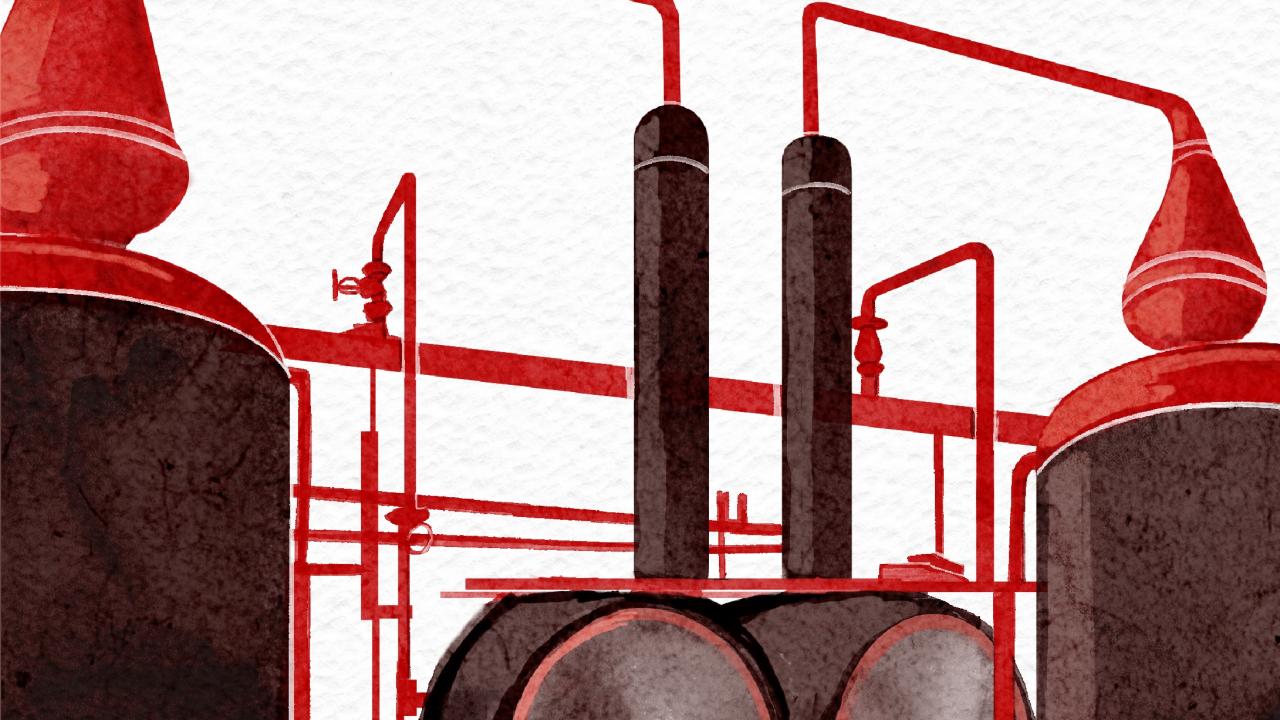Stitzel-Weller Distilling Co was established in 1933 through the amalgamation of A. Ph. Stitzel distillery and its biggest customer, W.L. Weller & Sons. The two had kept each other in business during Prohibition, the former owning a license to produce medicinal whiskey, and the latter with an important distribution network earned through unwavering trust in its owner and his unending crusade to bottle only the finest whiskey, Julian ‘Pappy’ Van Winkle I.
The repeal of Prohibition allowed the two companies to formalise their partnership and they opened a new distillery, Stitzel-Weller, on Kentucky Derby Day in 1935. Van Winkle originally shared ownership of the company with Arthur Philip Stitzel and Alex T. Farnsley, however outlived both to become its sole proprietor by 1947. Even as a distiller, Van Winkle’s desire for quality came before all else, and the distillery famously still displays a sign at its gates reading, “We make fine bourbon. At a profit if we can, at a loss if we must, but always fine bourbon.”
When 'Pappy' passed away in 1965, he had already handed the reigns to his son, Julian Jr, who intended and initially succeeded in running the company with the same ethos. His management however was increasingly intervened upon by the financial ambition of the distillery’s board of directors. This began with the insistence on marketing a lower proof product, something 'Pappy' had been staunchly opposed to, refusing to “pax tax on water.” Over the years more ground was conceded until 1972 rolled around and the shareholders demanded Julian accept an offer to buy the distillery from a company called Somerset Imports, and the Van Winkle family departed the business.
Stitzel-Weller had four core brands, W.L Weller, Old Fitzgerald, Rebel Yell and Cabin Still. It was the latter that Somerset Imports really wanted, intending to use the solid Cabin Still reputation as way of bottling an excess of whiskey they held in bond elsewhere and had previously struggled to sell. To their credit, they knew this policy would not fly with the others. Pappy Van Winkle’s insistence on only the best bourbon had made the Weller and Old Fitzgerald brands paragons, and for them to become anything less than “always fine bourbon” was not an option. The company put its full weight behind them, and even renamed the distillery after one of them, Old Fitzgerald.
Sadly, the distillery’s demise was secured by the ambition of its subsequent ownership. Somerset Imports owned the US distribution rights to the Johnnie Walker blends and this saw it eventually bought over in 1984 by the Distillers Company which wanted them back. The Scottish giant's subsequent iteration, United Distillers, then invested heavily in bourbon. The company also owned Bernheim through its acquisition of Schenley in 1987, the huge refurbishment of which meant its capacity negated any requirement for other facilities. Stitzel-Weller was shuttered in 1992. It has never re-opened and now houses Diageo warehousing and its Bulleit Bourbon Experience, however its legacy is far greater than that. United Distillers had quadrupled its output in its final years, and the bounty of casks ended up scattered across the various warehouses of Kentucky, seeds that would grow into a number of important brands such as Pappy Van Winkle, Very Olde St Nick and Jefferson’s Reserve. Perhaps most importantly, this secured the future for its Weller and Old Fitzgerald labels, which even today still occupy their place on the pantheon of bourbon greats.
